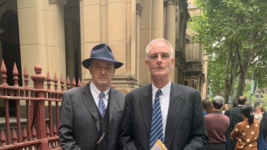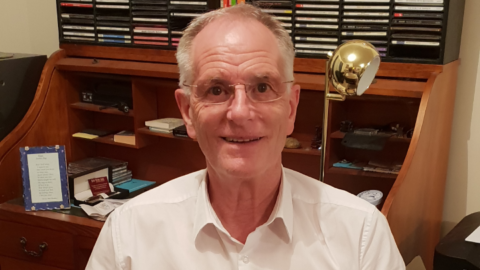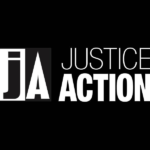Served His Time, Seeking Return: An Interview with Deported “Jailhouse Lawyer” David McCulloch

Former Victoria police drug squad sergeant Malcolm Rosenes was last week charged with drug trafficking, which, according to “jailhouse lawyer” David McCulloch, marks a return to the former detective’s old ways, as he was sentenced to prison on seven counts of trafficking back in 2003.
However, in 2011, in a moment of apparent repentance, Rosenes gave testimony that in 2001, after a large sum of drug money was found in McCulloch’s car, while occupied by him and three others, his fellow drug squad detectives lied and said it had been found in the man’s apartment.
Glasgow-born McCulloch maintains the money wasn’t his. But he was a financial adviser, with client’s including members of the notorious Carlton Crew. And he further asserts that detectives pinned it on him due to a 1996 burglary at a police office, which he neither had anything to do with.
McCulloch was eventually released on bail. He then agitated for a Royal Commission into the state’s drug squad, which he claims saw him sentenced to 14 years in 2005, despite all five detectives involved in his bust having since been arrested on drug trafficking and ultimately being sent away.
Served his time
With a desire to play professional soccer which wasn’t going to be fulfilled in Scotland, McCulloch immigrated to Australia in 1971, and he saw some success with the sport in Melbourne. He went on to have a family in this country and worked for a while as a social worker.
However, in the mid-80s, McCulloch’s father became sick with leukaemia, and as the specialist treatment was so expensive, the then 36-year-old Scottish man began dealing heroin out of a car yard, which saw him arrested and, two years later, sentenced to five and a half years in prison.
McCulloch regrets having dealt drugs, but he did serve his court ordered time. And he advises that in the early 1990s, when he started his business as a financial adviser, some of his clients were those he’d met due to the time he’d spent inside.
During his second stretch in prison, McCulloch became something of a jailhouse lawyer. He helped fellow inmates with their cases, and he also collaborated with management and academics in working towards the establishment of a Nordic-style recidivism reduction program.
Double punishment
In 2015, whilst detained in Barwon Prison, McCulloch was served with a notice that his resident visa had been cancelled by Scott Morrison, after the then immigration minister had toughed the migration character test laws.
But on appeal, succeeding immigration minister Peter Dutton revoked the visa cancellation in 2017 on family grounds, maintaining his decision would not be revisited unless McCulloch committed any further offence, of which he did not.
Following McCulloch’s release, however, by then home affairs minister Dutton retracted his earlier decision in 2019, basing this on spurious assertions by Victoria police about the legitimacy of the paralegal work the former inmate was still conducting, and, having been denied the possibility of refuting the claims, he was deported.
Sydney Criminal Lawyers spoke to now 73-year-old David McCulloch, who’s currently living in London, about his fight to return to Australia to be with his family, and how his case is currently being considered by the Victorian anti-corruption watchdog.

David, you were deported from Australia in 2019 after 50 years of having lived in the country, due to drug convictions. One was in the 1980s of which you admit, regret and served your time for. The second was a stitch up in 2001.
Why did the Victorian drug squad pin the latter crime on you? And how does the recent arrest of former detective Rosenes, who admitted you’d been framed in 2001, reflect on your case?
Essentially, I was being blamed for causing their careers to suffer, as I was named by an informer as having organised a break-in at the drug squad offices at police headquarters.
It was apparently several days before coordinated raids and arrests were to be simultaneously made in several countries.
This was due to several years of tipoffs, but there was only one copy of all the evidence, which was about to be signed off by the attorney general.
Malcolm Rosenes has already spent time in prison. So, I see his latest arrest as neutral, in relation to my matter.
You spent more than 13 years in an Australian prison, including 14 months on remand, over a crime you didn’t commit.
You’ve been hounded by local police since then and eventually, you were kicked out of the country over bogus claims.
So, why do you want to return to the country where all this occurred, when you’re now living in London seemingly free of this pressure from the Australian authorities?
My daughter, four grandchildren and six great grandchildren all reside in Australia. My parents, my sister and my brother, are all laid to rest in Australia.
My life is in Australia.
At the time of your second arrest, you’d been associated with members of the Carlton Crew, such as Lewis Moran and Graham Kinniburgh. This has raised questions about your innocence, but you claim it shouldn’t.
Can you speak on why this is the case?
I operated a financial services business and had no involvement in crime but advised Graham Kinniburgh in relation to his legitimate business dealings, as, indeed, I did several other “colourful individuals”, of whom I had encountered during my time in crime.
When I was arrested, nothing in relation to my business dealings was seized and no adverse comments in relation to my business was alleged.
You state there are ongoing Office of the Special Investigator (OSI) and Independent Broad-based Anticorruption Commission (IBAC) investigations that link to your suspect arrest and conviction. What do these involve?
I had submissions with the Royal Commission and understood I was one of many whose matters were to be investigated by the special investigator: former High Court of Australia Justice Geoffrey Nettle KC.
Approximately a week ago, Justice Nettle sent me a letter, stating that whilst my matter did not fall under the Office of the Special Investigator’s terms of reference, the OSI had reviewed the material I provided and found that my matter may have been subject to Victoria police personnel misconduct.
IBAC were brought in, and Justice Nettle has arranged to forward on material I provided to the OSI to IBAC.
In the meantime, I have written to Justice Nettle to advise him that I may indeed come under the OSI terms of reference, as Lawyer X had contacted me on several occasions, whilst I was on bail.
So, whilst I await a response from his Honour, I have been provided with a secure mode of electronically sending material to IBAC to further their investigation.
You’re also known as the Jailhouse Lawyer, having been the subject of podcasts. You’ve provided legal assistance to Australian prisoners and immigration detainees, as well as been involved with the successful Nordic program that reduces reoffending rates.
Can you talk about your work in this regard, and how it might reflect on your supposed criminality?
I’m involved in several Jailhouse Lawyer podcasts and feature in a Lawyer X TV program. I have another Jailhouse Lawyer podcast soon to be in production.
This will, amongst other things, discuss my involvement in the work I was doing in conjunction with a deputy general manager of Barwon Prison, doing a criminology degree, and two university professors.
Whilst I could have been in a detention centre awaiting a result from Dutton in relation to Morrison’s cancellation of my visa, I was permitted to remain at Barwon, because I was heavily involved in research relating to the Nordic countries long-term successful program in reducing recidivism in young prisoners in adult gaols.
Funding was granted and it seemed a similar program was about to be implemented at Barwon Prison and then rolled out to all Victorian prisons.
But an adjoining prison had a riot, and the funding was diverted for repairs to the damaged prison.
I was then released and worked on preparing a business plan to try and resurrect the program.
Then Dutton intervened.
Since arriving in London, I have made arrangements to visit several countries which continue to operate this program.
I will soon visit their facilities, learn how it’s become so successful and prepare a business plan and report.
I don’t see it reflecting on my criminality, as I’m aware no matter what I do, I can never atone for becoming a criminal, particularly in the area of drugs, which affects so many lives.
And lastly, David, despite having been the subject of such rough treatment over recent years and having had your resident visa revoked after half a century of living in Australia, you’re fighting to return.
What does this involve at present? And how is it going?
Well, I have had a second appeal ready for quite some time. My belief that the Royal Commission would vindicate me, didn’t come to fruition. The OSI was another hope and now there’s the IBAC.
My thought processes are, if I’m successful, it will negate having to mount a challenge in the Federal Court and the Supreme Court of Appeal.
The Federal Court to overturn my visa cancellation and the Supreme Court to acquit me of my recent conviction.







